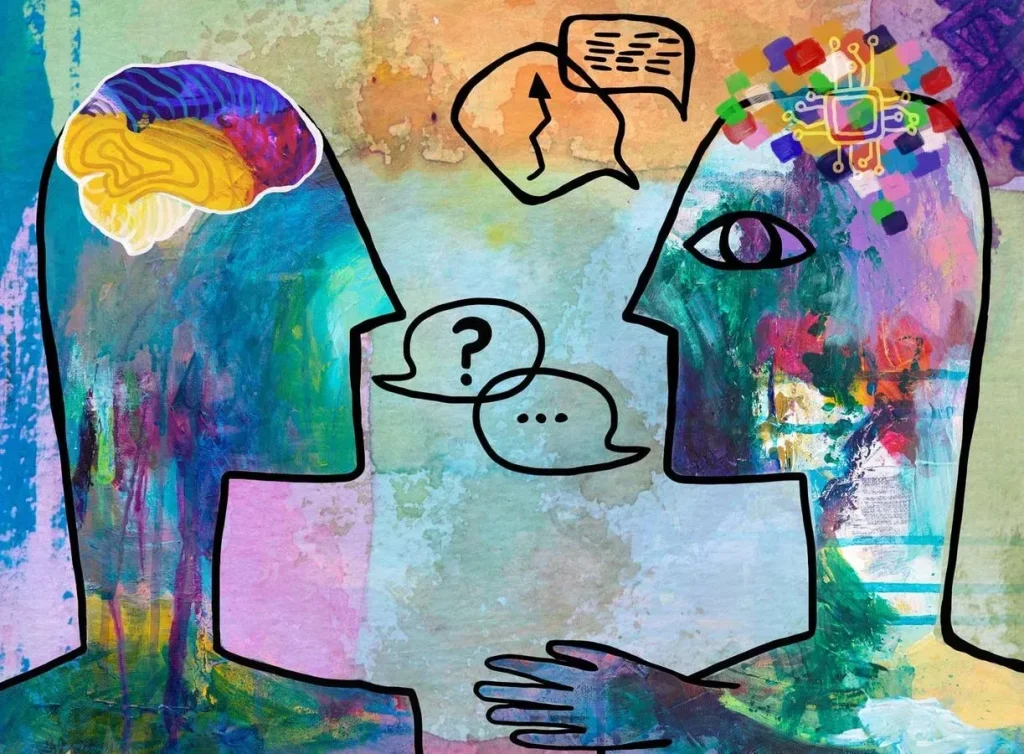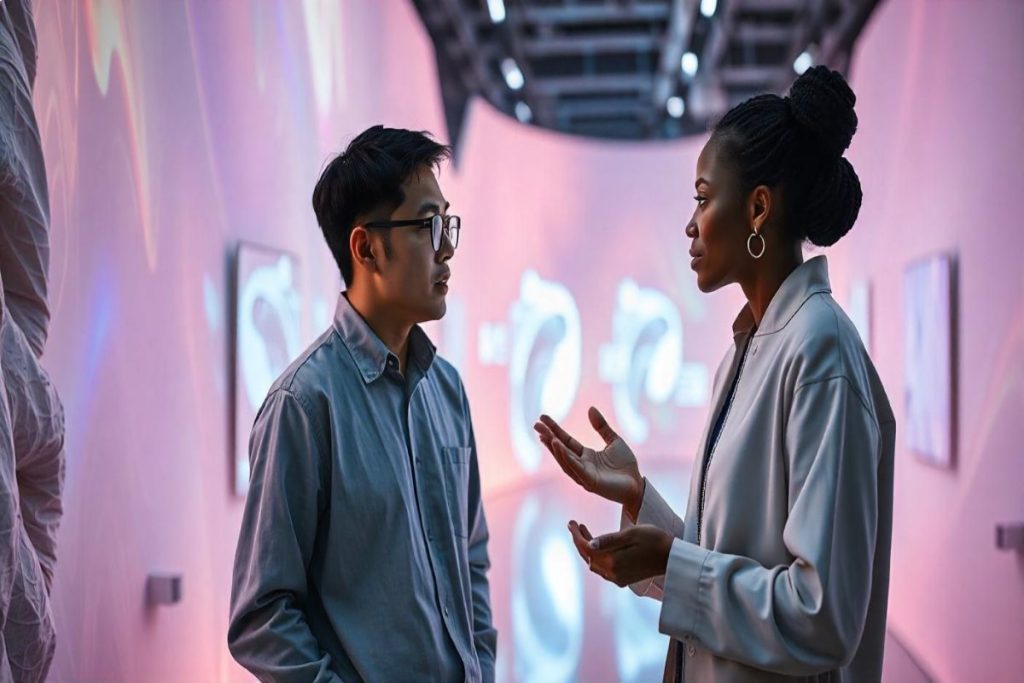AI homogenization is a concern increasingly discussed in our ever-evolving digital landscape, particularly as tools like ChatGPT influence the way we think and create. This phenomenon refers to the tendency of artificial intelligence to produce uniform outputs that can stifle writing originality and creativity. As we rely more heavily on these advanced technologies, the cognitive cost of AI becomes evident, manifesting in our thoughts and expressions. Recent evidence suggests that the pervasive effects of AI on creativity lead to a diminishing sense of ownership over our work, resulting in bland and repetitive ideas. With each generated response reflecting vast datasets and common patterns, AI homogenization threatens to weaken the individuality of our discourse and artistry, marking a critical shift in how we perceive originality in a world increasingly dominated by artificial intelligence.
The convergence of AI-generated content raises alarm regarding the uniformity of ideas and expressions, often termed as the “standardization of thought.” This trend can be seen in how large language models, such as ChatGPT, dictate norms in writing and creativity, often leading users to adopt widely accepted phrases and topics. The implications of this shift not only affect personal expression but also reflect broader cultural influences on human creativity. As users increasingly rely on AI tools for tasks that once required original thought, we witness a gradual erosion of writing individuality, with many individuals unconsciously aligning their perspectives with algorithms. This phenomenon of creative homogenization entrenches a status quo that prioritizes conformity over unique expression, raising critical questions about the future of authenticity in our narratives.
The Cognitive Cost of Artificial Intelligence
The integration of artificial intelligence (AI) in everyday writing has introduced significant cognitive costs that affect how we think and create. Studies reveal that utilizing tools like ChatGPT can diminish users’ brain activity, leading to fewer creative connections and less activation of regions associated with memory and innovative thinking. In a study conducted at M.I.T., it was observed that participants relying on AI demonstrated a marked decrease in cognitive engagement compared to those who depended solely on their own ingenuity or even Google Search, which offered a more balanced approach to information retrieval.
The cognitive cost manifests in a loss of ownership over one’s ideas, as many users of AI tools reported feeling detached from the content they produced. This disconnection raises questions about the true value of written work generated through such technologies—if the creator cannot recall any ownership of their output, what does it signify for originality and authenticity in writing? This phenomenon highlights a more extensive trend where the reliance on AI creates an intellectual dependency, reducing our mental engagement in tasks traditionally viewed as creative endeavors.
Frequently Asked Questions
How does AI homogenization affect writing originality?
AI homogenization, particularly through tools like ChatGPT, leads to a reduction in writing originality. Studies show that reliance on AI for writing prompts results in texts that are similar in content and style, promoting conformity rather than unique expression. This phenomenon is illustrated in M.I.T.’s research, where students using AI produced essays with less diverse ideas and phrases.
What is the cognitive cost of using AI in creativity?
The cognitive cost of AI in creativity refers to the decreased brain activity observed when individuals rely on artificial intelligence for tasks that require original thought. Research indicates that AI users show lower brain connectivity linked to creativity, leading to diminished capacity for original and critical thinking.
How does the influence of ChatGPT contribute to AI homogenization?
ChatGPT contributes to AI homogenization by generating responses that tend to align with average consensus views, resulting in a lack of diversity in writing styles and ideas. This can lead users to produce more uniform content, thereby stifling their individual voices and perspectives.
Are the effects of AI on creativity reversible?
While the effects of AI on creativity might be reversible, overcoming them requires intentional practice and effort to reclaim one’s unique voice. Individuals may need to consciously engage in creative thinking exercises without the influence of AI tools to restore originality.
What tools can help counteract AI homogenization?
To counteract AI homogenization, writers can explore brainstorming techniques, collaborate with diverse thinkers, and utilize prompts that encourage personal reflection and critical analysis. By distancing themselves from AI suggestions, authors can cultivate and maintain their original writing styles.
Can AI tools like ChatGPT enhance or hinder creativity?
While AI tools like ChatGPT can enhance creativity by providing quick inspiration or suggestions, they can also hinder it by promoting homogenization of ideas. Those relying heavily on AI may find their unique interpretations and innovative thoughts diminished as they align their outputs with common responses.
What has research shown about AI’s impact on cultural perspectives?
Research indicates that AI can lead to cultural homogenization, as seen in studies where AI users produce responses that reflect Western norms and perspectives, potentially erasing relevant cultural diversity in thought and expression, thereby impacting creativity and originality.
How can reliance on AI affect our thinking patterns?
Reliance on AI can alter our thinking patterns by diminishing creative thought processes and leading to a more average, conventional mindset. This is because the constant input from AI can override personal insights and diminish confidence in one’s own ideas.
| Key Point | Details |
|---|---|
| Cognitive Cost of A.I. | Reliance on A.I. tools like ChatGPT decreases brain activity and creativity, leading users to feel a lack of ownership over their work. |
| Homogenization of Ideas | Texts generated by A.I. reveal similarities across writers, converging on common phrases and themes. |
| Impact on Cultural Norms | A.I. influences users’ preferences and writing styles, leading to a dilution of cultural and individual identities. |
| Potential for Originality | Questions remain about A.I.’s ability to assist in original thought generation, as experiments show that A.I. users produce more similar ideas. |
| Long-term Consequences | The widespread use of A.I. could reshape the common understanding of normality and creativity. |
Summary
AI homogenization is resulting in a significant shift in how we think and express ourselves. The increasing reliance on artificial intelligence for creative tasks diminishes individual thought processes and produces outputs that lack diversity. This trend raises concerns over the cultural implications and originality of ideas in the future, suggesting a pressing need to evaluate our engagement with AI technologies.



